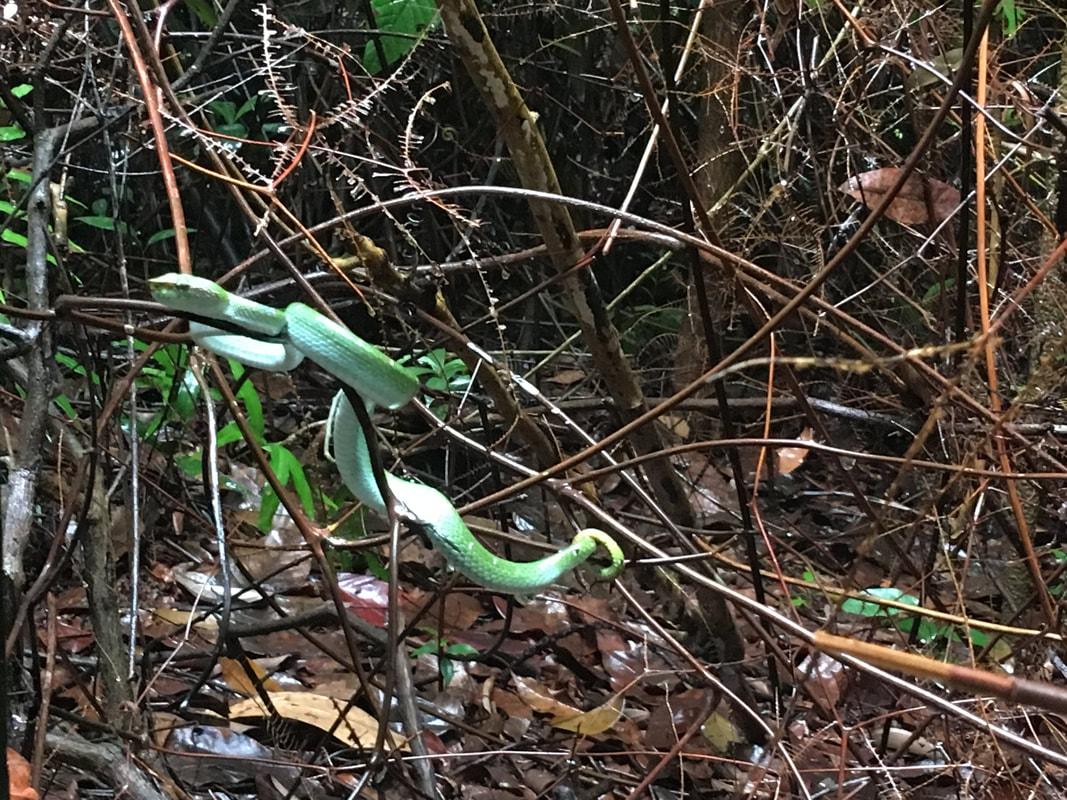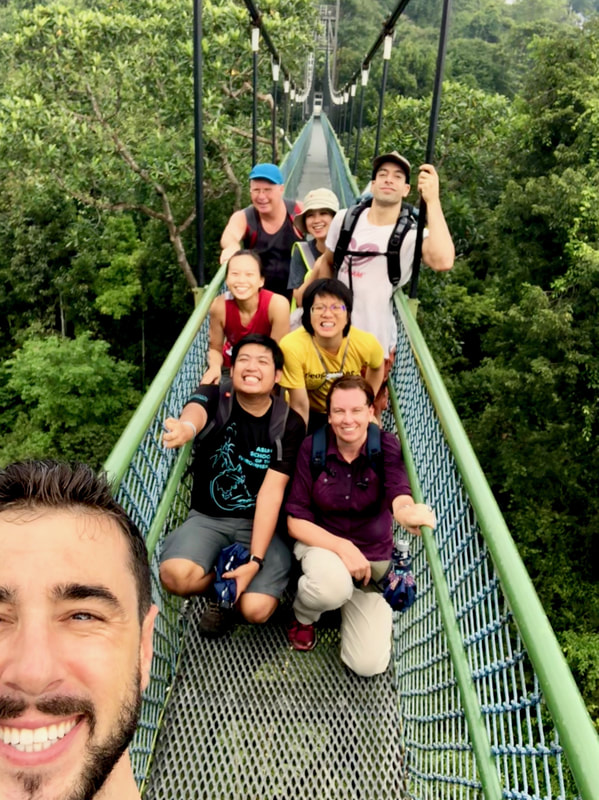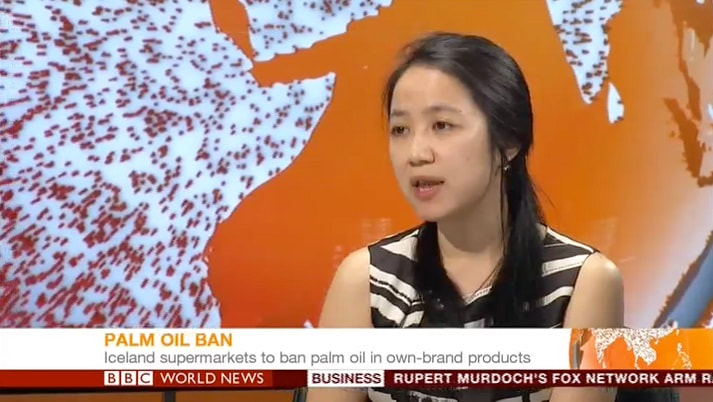|
Singapore does have pockets of nature and the trails at the Central Catchment Nature Reserve are among the best places to take long walks. We finally had a lab outing and hiked the trail from Venus Drive to the Tree Top Walk, and finally to Bukit Timah Nature Reserve. David Wardle, Anna Lagerstroem and Matt Luskin joined us for this enjoyable trail. Spotted a pit viper, many cool spiders and a headless cicada along the way. We all agreed this should be done at least once in 6 months :) Photo credit: Janice Lee Photo credit: Matthew Luskin
0 Comments
Taken from the Asian School of the Environment News: http://ase.ntu.edu.sg/news/palm-oil-or-not-dr-janice-lee-weighs-palm-oil-ban-bbc#.WtNG1dO5vGI
-- When BBC Asia Business Report did a story about a supermarket chain planning to ban palm oil in their products, Assistant Professor Dr. Janice Lee from the Asian School of the Environment was brought in as an expert to comment. Dr. Lee, who’s research interests include sustainable certification of agro-commodities, pointed out that a total ban on palm oil would send confusing signals to producers who have invested in sustainable palm oil production. From a food security and conservation perspective, switching to sustainable palm oil production makes more sense than a ban, since palm oil is the most efficient crop for producing vegetable oil. Palm oil has a yield 3 – 4 times that of soybean, rapeseed and canola oil, meaning that a ban on palm oil would lead to more land being devoted to vegetable oil production, land that could come from natural ecosystems or displace other land uses which could affect natural ecosystems. The main problem with palm oil production is that it grows optimally in the tropics and competes with biodiverse and carbon rich ecosystems like rainforests for land. To mitigate the environmental and social impacts related to palm oil production in the tropics, the Roundtable of Sustainable Palm Oil (RSPO), a multi-stakeholder organization which certifies sustainably produced palm oil based on a set of environmental and social criteria, was established in 2007. The first batch of certified sustainable palm oil was produced in 2011, and constituted 10% of total global production. Currently, the amount of certified sustainable palm oil is 11.9 million tonnes, and that accounts for 19% of total global palm oil production. However, only half of this certified palm oil is purchased by consumers. A lack of support for certified palm oil production could run the risk of less producers taking up environmental and social safeguards in their oil palm plantations. For more information on this matter, see this excellent write-up by the University of Kent. |



 RSS Feed
RSS Feed
